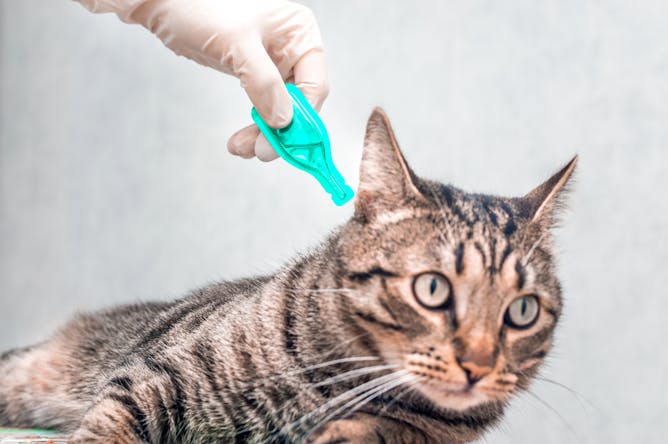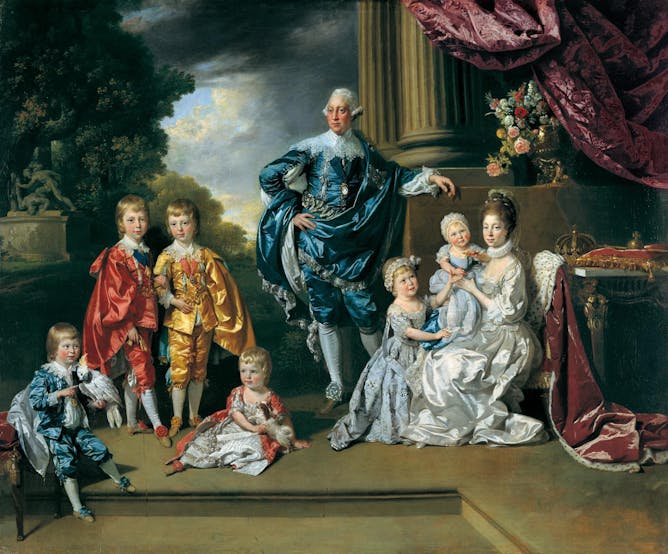|
People once relied on folk wisdom to make sense of the weather. Without a Met Office supercomputer or masses of data on which to base forecasts, phrases like ‘April showers’ helped them know what to expect at a certain time of year.
We asked Rob Thompson, a rainfall scientist at the University of Reading (and a man with access to those supercomputers), if April showers are really a thing. And it turns out they are: April, in the UK at least, has the lowest rainfall per rainy day of any month. This really is the time of year for frequent showers with fewer of the big downpours you might get in summer or winter.
Thompson explains why April weather can be sunny one minute then rainy the next, and looks at how climate breakdown will affect the April shower.
If you’re using preventative flea treatments on your pets, you may be washing harmful chemicals into our rivers in the process. An investigation found that chemicals applied to dogs and cats get washed and stroked off, ending up in water supplies.
And recent events weren’t the first time the British royal family was at the centre of a conspiracy-laden media storm. A historian looks at some of the wild theorising prompted by George III’s “madness” in the 1700s.
|

|
Will de Freitas
Environment + Energy Editor
|
|

Brian A Jackson / shutterstock
Rob Thompson, University of Reading
Why the weather can be sunny one minute then rainy the next.
|

Anastasiya Tsiasemnikava/Shutterstock
Dave Goulson, University of Sussex
Pesticides present in pet flea and tick treatments pose a risk to human health and the environment - but monthly application as a preventative measure isn’t essential.
|

George III, Queen Charlotte and their Six Eldest Children by Johan Zoffany (1770).
Wikimedia
Natalee Garrett, The Open University
The story of the ‘royal malady’ highlights the growth of the press and how it has shaped how the British public perceives the royal family.
|
World
|
-
Sergey Katsuba, University College Dublin
Thirty years after homosexuality was decriminalised in Russia, new laws making ‘gay propaganda’ an offence are criminalising being gay.
-
Rod Thornton, King's College London
Conscription is being talked about by Nato’s European members as they grow increasingly concerned about further Russian expansion. Ukraine has just expanded its version.
-
Chee Meng Tan, University of Nottingham
India’s Modi may be betting on Trump’s return to the White House to build on their existing relationship.
|
|
Politics + Society
|
-
Victoria J E Jones, Northumbria University, Newcastle
For many, furlough was a time of disorientation and reflection.
|
|
Arts + Culture
|
-
Simon Bainbridge, Lancaster University
Photography and rock-climbing have always shared a close relationship.
|
|
Business + Economy
|
-
Hamza Mudassir, Cambridge Judge Business School
The company’s fortunes could depend on celebrity CEO Elon Musk keeping focus.
|
|
Education
|
-
Jo Ellins, University of Birmingham
Mental health support teams are helping schools, but not all young people
benefit.
|
|
Environment
|
-
Tom Oliver, University of Reading
A new book, The Exhausted Earth, outlines how capitalism leads to burnout - for people and planet. But regenerative solutions are possible if people focus on interconnectedness, not isolation.
|
|
Health
|
-
Andrea Wigfield, Sheffield Hallam University
A recent study showed encouraging people with obesity to interact with others more can keep them alive for longer.
-
Ian Hamilton, University of York; Mark Monaghan, Loughborough University
Alcohol and tobacco use carries significant health risks but they’re legalised – so why not cannabis? Despite the concerns, decriminalising cannabis could have public health benefits.
-
Divna Haslam, Queensland University of Technology
In our house, we watch Bluey guilt-free. Here’s why.
|
|
Science + Technology
|
-
Oisin Creaner, Dublin City University
A type of eclipse is crucial for measuring what’s in the atmospheres of planets orbiting distant stars.
|
|
|
|
| |
|
|
8 March - 18 May 2024
•
Glasgow
|

|
|
|

|
16 - 18 April 2024
•
Southampton
|

|
22 April 2024
•
Birmingham
|

|
|
|
|
| |
| |
| |
| |
| |
|
|